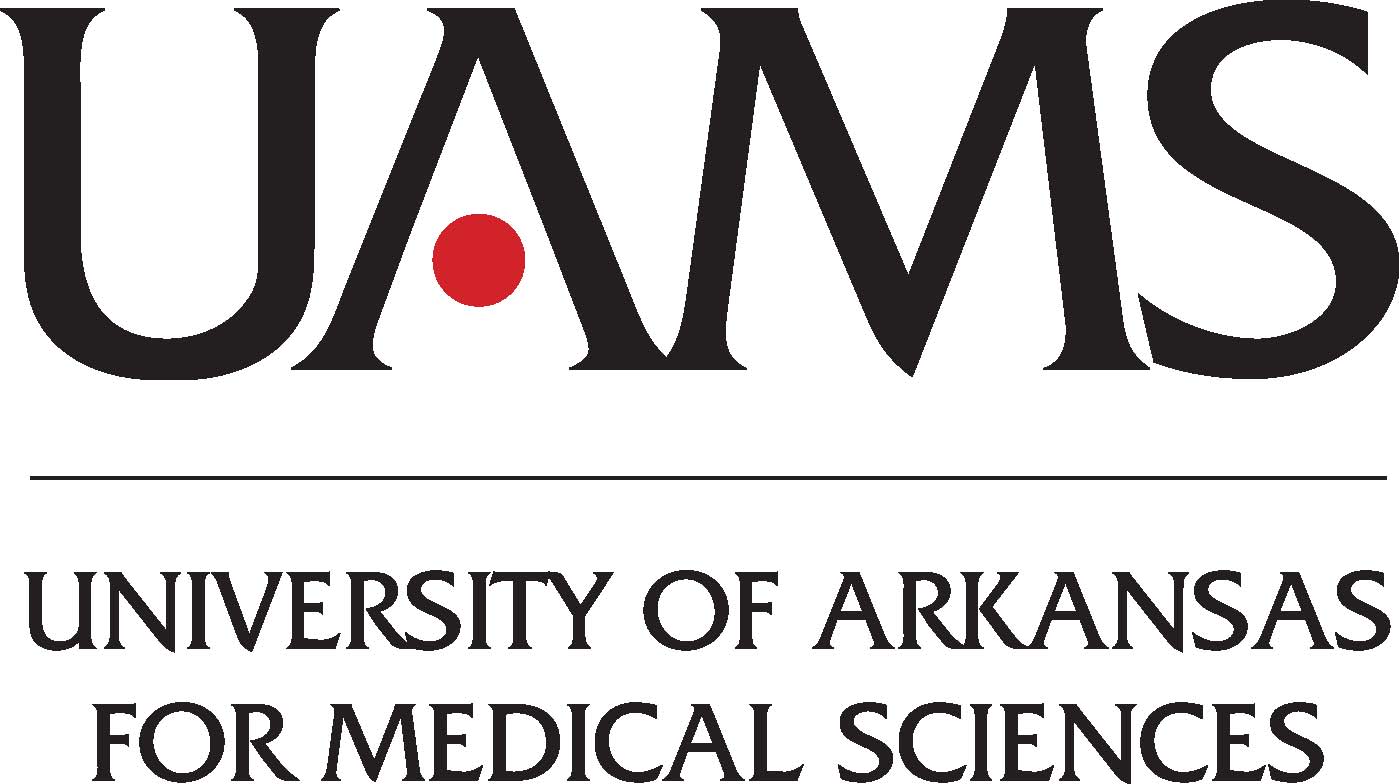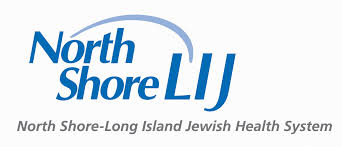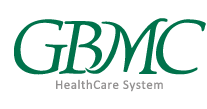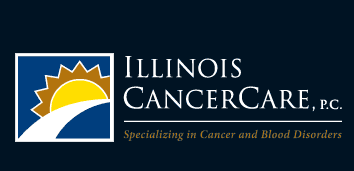Paclitaxel and Carboplatin With or Without Bevacizumab in Treating Patients With Stage II, Stage III, or Stage IV Ovarian Epithelial Cancer, Primary Peritoneal Cancer, or Fallopian Tube Cancer
| Status: | Active, not recruiting |
|---|---|
| Conditions: | Ovarian Cancer, Cancer, Cancer |
| Therapuetic Areas: | Oncology |
| Healthy: | No |
| Age Range: | 18 - Any |
| Updated: | 3/16/2019 |
| Start Date: | September 27, 2010 |
GOG-0262: A Phase III Trial of Every-3-Weeks Paclitaxel Versus Dose Dense Weekly Paclitaxel in Combination With Carboplatin With or Without Concurrent and Consolidation Bevacizumab (NSC #704865) in the Treatment of Primary Stage II, III or IV Epithelial Ovarian, Peritoneal or Fallopian Tube Cancer and ACRIN 6695: Perfusion CT Imaging to Evaluate Treatment Response in Patients Participating in GOG-0262
This phase III clinical trial studies two different dose schedules of paclitaxel to see how
well they work in combination with carboplatin with or without bevacizumab in treating
patients with stage II, III or IV ovarian epithelial cancer, primary peritoneal cancer, or
fallopian tube cancer. Drugs used in chemotherapy, such as paclitaxel and carboplatin, work
in different ways to stop the growth of tumor cells, either by killing the cells, by stopping
them from dividing, or by stopping them from spreading. Bevacizumab is a type of drug called
a monoclonal antibody and blocks tumor growth by stopping the growth of blood vessels that
tumors need to grow. It is not yet known whether giving paclitaxel with combination
chemotherapy once every three weeks is more effective than giving paclitaxel once a week in
treating patients with ovarian, primary peritoneal, or fallopian tube cancer.
well they work in combination with carboplatin with or without bevacizumab in treating
patients with stage II, III or IV ovarian epithelial cancer, primary peritoneal cancer, or
fallopian tube cancer. Drugs used in chemotherapy, such as paclitaxel and carboplatin, work
in different ways to stop the growth of tumor cells, either by killing the cells, by stopping
them from dividing, or by stopping them from spreading. Bevacizumab is a type of drug called
a monoclonal antibody and blocks tumor growth by stopping the growth of blood vessels that
tumors need to grow. It is not yet known whether giving paclitaxel with combination
chemotherapy once every three weeks is more effective than giving paclitaxel once a week in
treating patients with ovarian, primary peritoneal, or fallopian tube cancer.
PRIMARY OBJECTIVES:
I. To determine if the weekly paclitaxel regimen increases the time until first progression
or death (progression-free survival [PFS]) compared to the every-3-week paclitaxel regimen in
women with primary stage II, III or IV epithelial ovarian, peritoneal or fallopian tube
cancer who are receiving carboplatin with or without bevacizumab.
SECONDARY OBJECTIVES:
I. To determine if the weekly paclitaxel increases the duration of overall survival compared
to the every-3-week paclitaxel when combined with carboplatin with or without bevacizumab.
II. To compare the weekly paclitaxel to the every-3-week paclitaxel with respect to the
incidence of severe or serious adverse events when it is combined with carboplatin with or
without bevacizumab.
III. To compare the weekly paclitaxel to the every-3-week paclitaxel with respect to
patients' self-reported quality of life (QOL) as measured by the Functional Assessment of
Cancer Therapy-Ovarian (FACT-O)-Trial Outcome Index (TOI), when paclitaxel is combined with
carboplatin with or without bevacizumab. (As of 02/08/2012, the QOL portion of this study is
complete; patients enrolled after this date will not have QOL assessments)
TRANSLATIONAL RESEARCH OBJECTIVES:
I. To evaluate single nucleotide polymorphisms (SNPs) associated with progression-free
survival and toxicity in advanced stage epithelial ovarian, peritoneal and fallopian tube
cancer using genome wide association studies (GWAS).* II. To evaluate genomic signatures in
tumor tissues which are predictive for patient survival in advanced stage epithelial ovarian,
peritoneal and fallopian tube cancer.* III. To evaluate the association between serum and
plasma biomarkers and response to anti-angiogenesis therapy in advanced stage epithelial
ovarian, peritoneal, and fallopian tube cancer.*
NOTE: *As of 02/08/2012, the translational research (TR) portion of this study is complete;
patients enrolled after this date will not have TR specimens collected.
IMAGING PRIMARY OBJECTIVES:
I. To determine whether larger changes in the tumor perfusion parameters from baseline
timepoint (T0) to early-therapy T2 are prognostic of higher progression-free survival (PFS)
rate at 6 months (PFS-6) from enrollment in patients treated with weekly or every-3-week
paclitaxel regimens, who are receiving carboplatin with or without bevacizumab.***
IMAGING SECONDARY OBJECTIVES:
I. To determine whether larger changes in tumor perfusion parameters from baseline T0 to
intermediate T1 and from T1 to T2 are prognostic of higher PFS-6 in patients treated with
weekly or every-3-week paclitaxel regimens, who are receiving carboplatin with or without
bevacizumab.*** II. To determine whether larger changes in tumor perfusion parameters values
from T0 to T1, T0 to T2, and T1 to T2 are prognostic of better overall survival in all
treatment arms.*** III. To assess the association between changes in tumor perfusion
parameters before and after chemotherapy initiation (T0 to T1) and subsequent best tumor
response according to standard anatomic Response Evaluation Criteria in Solid Tumors
(RECIST).*** IV. To assess the association between tumor perfusion parameters before
chemotherapy and subsequent best tumor response according to RECIST, PFS-6, and overall
survival.*** V. To test the assumption that tumor perfusion parameters are reliable,
user-independent, and reproducible parameters of tumor microvascular characteristics; a
subgroup of 15 patients will have repeat computed tomography (CT) perfusion studies at the
intermediate T1 time point.***
NOTE: ***Patients enrolled after February 8, 2012 must participate in the ACRIN 6695
component at ACRIN-qualified institutions.
OUTLINE: Patients are randomized to 1 of 2 treatment arms (beginning on 04-30-2012, the trial
is no longer randomized and the chemotherapy regimen is selected and declared prior to
enrolling in the study).
ARM I (adjuvant chemotherapy suboptimally debulked): Patients receive paclitaxel
intravenously (IV) over 3 hours and carboplatin IV over 30 minutes on day 1. Treatment
repeats every 21 days for 6 courses.
ARM II (neoadjuvant chemotherapy with interval cytoreductive surgery): Patients receive
paclitaxel IV over 1 hour on days 1, 8, and 15 and carboplatin IV over 30 minutes on day 1.
Treatment repeats every 21 days for 6 courses. Patients undergo interval cytoreductive
surgery between courses 3 and 4.
Patients in both arms may receive optional** bevacizumab IV over 30-90 minutes on day 1
beginning in course 2. Courses of bevacizumab repeat every 21 days in the absence of disease
progression or unacceptable toxicity. Patients in Arm II receive bevacizumab during courses
2, 5, and 6 only.
NOTE: **Before enrolling onto this study, each patient chooses whether the study treatment
will include concurrent and maintenance bevacizumab.
After completion of study treatment, patients are followed up every 3 months for 2 years,
every 6 months for 3 years, and then annually thereafter.
I. To determine if the weekly paclitaxel regimen increases the time until first progression
or death (progression-free survival [PFS]) compared to the every-3-week paclitaxel regimen in
women with primary stage II, III or IV epithelial ovarian, peritoneal or fallopian tube
cancer who are receiving carboplatin with or without bevacizumab.
SECONDARY OBJECTIVES:
I. To determine if the weekly paclitaxel increases the duration of overall survival compared
to the every-3-week paclitaxel when combined with carboplatin with or without bevacizumab.
II. To compare the weekly paclitaxel to the every-3-week paclitaxel with respect to the
incidence of severe or serious adverse events when it is combined with carboplatin with or
without bevacizumab.
III. To compare the weekly paclitaxel to the every-3-week paclitaxel with respect to
patients' self-reported quality of life (QOL) as measured by the Functional Assessment of
Cancer Therapy-Ovarian (FACT-O)-Trial Outcome Index (TOI), when paclitaxel is combined with
carboplatin with or without bevacizumab. (As of 02/08/2012, the QOL portion of this study is
complete; patients enrolled after this date will not have QOL assessments)
TRANSLATIONAL RESEARCH OBJECTIVES:
I. To evaluate single nucleotide polymorphisms (SNPs) associated with progression-free
survival and toxicity in advanced stage epithelial ovarian, peritoneal and fallopian tube
cancer using genome wide association studies (GWAS).* II. To evaluate genomic signatures in
tumor tissues which are predictive for patient survival in advanced stage epithelial ovarian,
peritoneal and fallopian tube cancer.* III. To evaluate the association between serum and
plasma biomarkers and response to anti-angiogenesis therapy in advanced stage epithelial
ovarian, peritoneal, and fallopian tube cancer.*
NOTE: *As of 02/08/2012, the translational research (TR) portion of this study is complete;
patients enrolled after this date will not have TR specimens collected.
IMAGING PRIMARY OBJECTIVES:
I. To determine whether larger changes in the tumor perfusion parameters from baseline
timepoint (T0) to early-therapy T2 are prognostic of higher progression-free survival (PFS)
rate at 6 months (PFS-6) from enrollment in patients treated with weekly or every-3-week
paclitaxel regimens, who are receiving carboplatin with or without bevacizumab.***
IMAGING SECONDARY OBJECTIVES:
I. To determine whether larger changes in tumor perfusion parameters from baseline T0 to
intermediate T1 and from T1 to T2 are prognostic of higher PFS-6 in patients treated with
weekly or every-3-week paclitaxel regimens, who are receiving carboplatin with or without
bevacizumab.*** II. To determine whether larger changes in tumor perfusion parameters values
from T0 to T1, T0 to T2, and T1 to T2 are prognostic of better overall survival in all
treatment arms.*** III. To assess the association between changes in tumor perfusion
parameters before and after chemotherapy initiation (T0 to T1) and subsequent best tumor
response according to standard anatomic Response Evaluation Criteria in Solid Tumors
(RECIST).*** IV. To assess the association between tumor perfusion parameters before
chemotherapy and subsequent best tumor response according to RECIST, PFS-6, and overall
survival.*** V. To test the assumption that tumor perfusion parameters are reliable,
user-independent, and reproducible parameters of tumor microvascular characteristics; a
subgroup of 15 patients will have repeat computed tomography (CT) perfusion studies at the
intermediate T1 time point.***
NOTE: ***Patients enrolled after February 8, 2012 must participate in the ACRIN 6695
component at ACRIN-qualified institutions.
OUTLINE: Patients are randomized to 1 of 2 treatment arms (beginning on 04-30-2012, the trial
is no longer randomized and the chemotherapy regimen is selected and declared prior to
enrolling in the study).
ARM I (adjuvant chemotherapy suboptimally debulked): Patients receive paclitaxel
intravenously (IV) over 3 hours and carboplatin IV over 30 minutes on day 1. Treatment
repeats every 21 days for 6 courses.
ARM II (neoadjuvant chemotherapy with interval cytoreductive surgery): Patients receive
paclitaxel IV over 1 hour on days 1, 8, and 15 and carboplatin IV over 30 minutes on day 1.
Treatment repeats every 21 days for 6 courses. Patients undergo interval cytoreductive
surgery between courses 3 and 4.
Patients in both arms may receive optional** bevacizumab IV over 30-90 minutes on day 1
beginning in course 2. Courses of bevacizumab repeat every 21 days in the absence of disease
progression or unacceptable toxicity. Patients in Arm II receive bevacizumab during courses
2, 5, and 6 only.
NOTE: **Before enrolling onto this study, each patient chooses whether the study treatment
will include concurrent and maintenance bevacizumab.
After completion of study treatment, patients are followed up every 3 months for 2 years,
every 6 months for 3 years, and then annually thereafter.
Inclusion Criteria:
- Primary Surgery and Neoadjuvant Chemotherapy with Interval Cytoreductive Surgery
Patients:
- Patients must have measurable disease; at least one target lesion must have a minimum
length of 1 cm in both the long and short axis (determined at the local site); for
primary surgery patients, if no radiographic evidence of measurable disease is
obtained prior to registration this can be based on surgical findings; imaging then
would need to be completed in the 14 days between Gynecology Oncology Group (GOG)
registration and chemotherapy initiation
- After GOG registration, the American College of Radiology [ACR] Imaging Core
Laboratory will confirm target lesion as required per protocol; the
GOG-eligibility (RECIST) scan and baseline T0 perfusion CT scans will be reviewed
prior to the intermediate T1 perfusion CT time point
- Primary Surgery Patients:
- Patients with a histologic diagnosis of epithelial ovarian cancer, peritoneal primary
carcinoma or fallopian tube cancer, stage II -IV suboptimally debulked (any residual
disease > 1 cm); International Federation of Gynecology and Obstetrics (FIGO) stage is
assessed following the completion of initial abdominal surgery, appropriate imaging
studies and with appropriate tissue available for histologic evaluation; the minimum
surgery required is an abdominal surgery providing tissue for histologic evaluation
and establishing and documenting the primary site and stage; if additional surgery was
performed, it should have been in accordance with appropriate surgery for ovarian or
peritoneal carcinoma described in the GOG Surgical Procedures Manual
- Neoadjuvant Chemotherapy (NAC) with Interval Cytoreductive Surgery (ICS) Patients:
- For patients undergoing NAC-ICS, a core tissue (not fine needle aspiration) biopsy is
required; the tissue must be consistent with a Müllerian origin; patients will require
documentation of at least stage II or extraovarian sites of disease acquired via
imaging or surgery (without attempt at cytoreduction)
- Patients with the following histologic epithelial cell types are eligible: serous,
endometrioid, clear cell, mucinous adenocarcinoma, undifferentiated carcinoma, mixed
epithelial carcinoma, transitional cell carcinoma, malignant Brenner's Tumor, or
adenocarcinoma not otherwise specified (N.O.S.); however, the histologic features of
the tumor must be compatible with a primary Müllerian epithelial adenocarcinoma;
patients may have co-existing fallopian tube carcinoma in-situ so long as the primary
origin of invasive tumor is ovarian, peritoneal or fallopian tube; of note, patients
with clear cell and mucinous tumors will be eligible unless there is a higher priority
protocol
- Absolute neutrophil count (ANC) greater than or equal to 1,500/mcl; this ANC cannot
have been induced or supported by granulocyte colony stimulating factors
- Platelets greater than or equal to 100,000/mcl
- Creatinine =< 1.5 x institutional upper limit normal (ULN)
- Bilirubin less than or equal to 1.5 x ULN
- Serum glutamic oxaloacetic transaminase (SGOT) less than or equal to 3 x ULN
- Alkaline phosphatase less than or equal to 2.5 x ULN
- Neuropathy (sensory or motor) less than or equal to Common Terminology Criteria for
Adverse Events (CTCAE) grade 1
- Patients must have a GOG performance status of 0, 1, or 2
- Patients must be entered within 12 weeks of diagnostic/staging surgery
- Patients who have met the pre-entry requirements
- An approved informed consent and authorization permitting release of personal health
information and must be signed by the patient or guardian
- Only applies for patients who elect to receive bevacizumab:
- Patients in this trial may receive ovarian estrogen +/- progestin replacement
therapy as indicated at the lowest effective dose(s) for control of menopausal
symptoms at any time, but not high-dose progestins for management of anorexia
while on protocol-directed therapy or prior to disease progression due to
thrombophlebitis risk
- Prothrombin time (PT) such that international normalized ratio (INR) is =< 1.5
(or an in-range INR, usually between 2 and 3, if a patient is on a stable dose of
therapeutic warfarin for management of venous thrombosis including pulmonary
thromboembolus) and a partial prothrombin time (PTT) < 1.2 times the upper limit
of normal; (heparin, lovenox or alternative anticoagulants are acceptable)
- All patients enrolled into GOG-0262 at sites where ACRIN 6695 is open will be
enrolled in the advanced imaging protocol; patients receiving adjuvant or
neoadjuvant chemotherapy are eligible for ACRIN 6695; the following sentence does
not apply to those patients entered after 02/08/2012: if a patient declines to
participate in the perfusion imaging portion of the protocol, a clinical
rationale for declination of imaging form will be completed as part of the data
submission for ACRIN 6695
- ACRIN 6695 Eligible Patients:
- Confirmation of ACRIN 6695 eligibility after the baseline T0 perfusion computed
tomography (CT) will be assessed by the ACR Imaging Core Lab: At least one target
lesion must have a minimum length of 1 cm in both the long and short axis (as
determined by the local site), at least half of the target lesion must have
attenuation greater than or equal to 10 Hounsfield Units (HU) on the unenhanced
CT, and at least half of the lesion must have maximum enhancement greater than or
equal to 5 HU in the perfusion CT scan (as determined by the ACR Imaging Core
Lab)
Exclusion Criteria:
- Patients with a current diagnosis of borderline epithelial ovarian tumor (formerly
"tumors of low malignant potential") or recurrent invasive epithelial ovarian, primary
peritoneal or fallopian tube cancer treated with surgery only (such as patients with
stage I-A or I-B low grade epithelial ovarian or fallopian tube cancers) are not
eligible; patients with a prior diagnosis of a borderline tumor that was surgically
resected and who subsequently develop an unrelated, new invasive epithelial ovarian,
peritoneal primary or fallopian tube cancer are eligible, provided that they have not
received prior chemotherapy for any ovarian tumor
- Patients who have received prior radiotherapy to any portion of the abdominal cavity
or pelvis; prior radiation for localized cancer of the breast, head and neck, or skin
is permitted, provided that it was completed more than three years prior to
registration, and the patient remains free of recurrent or metastatic disease
- Patients who have received prior chemotherapy for any abdominal or pelvic tumor
including neo-adjuvant chemotherapy for their ovarian, primary peritoneal or fallopian
tube cancer; patients may have received prior adjuvant chemotherapy for localized
breast cancer, provided that it was completed more than three years prior to
registration, and that the patient remains free of recurrent or metastatic disease
- Patients who have received any targeted therapy (including but not limited to
vaccines, antibodies, tyrosine kinase inhibitors) or hormonal therapy for management
of their epithelial ovarian, fallopian tube or peritoneal primary cancer
- Patients with synchronous primary endometrial cancer, or a past history of primary
endometrial cancer, unless all of the following conditions are met: stage not greater
than I-A, grade 1 or 2, no more than superficial myometrial invasion, without vascular
or lymphatic invasion; no poorly differentiated subtypes, including papillary serous,
clear cell or other FIGO grade 3 lesions
- With the exception of non-melanoma skin cancer, patients with other invasive
malignancies who had (or have) any evidence of the other cancer present within the
last five years or whose previous cancer treatment contraindicates this protocol
therapy
- Patients with acute hepatitis or active infection that requires parenteral antibiotics
- Patients with clinically significant cardiovascular disease; this includes:
- Myocardial infarction or unstable angina < 6 months prior to registration
- New York Heart Association (NYHA) grade II or greater congestive heart failure
- Serious cardiac arrhythmia requiring medication; this does not include
asymptomatic, atrial fibrillation with controlled ventricular rate
- Patients who are pregnant or nursing; patients of childbearing potential must agree to
use contraceptive measures during study therapy and for at least six months after
completion of bevacizumab therapy
- Patients who have received prior therapy with any anti-vascular endothelial growth
factor (VEGF) drug, including bevacizumab
- Patients with medical history or conditions not otherwise previously specified which
in the opinion of the investigator should exclude participation in this study; the
investigator should feel free to consult the Statistical and Data Center (SDC)
randomization desk for uncertainty in this regard
- Patients with known allergy to cremophor or polysorbate 80
- Only applies to patients who elect to receive bevacizumab:
- Patients with serious non-healing wound, ulcer, or bone fracture; this includes
history of abdominal fistula, gastrointestinal perforation or intra-abdominal abscess
within 28 days; patients with granulating incisions healing by secondary intention
with no evidence of fascial dehiscence or infection are eligible but require weekly
wound examinations
- Patients with active bleeding or pathologic conditions that carry high risk of
bleeding, such as known bleeding disorder, coagulopathy, or tumor involving major
vessels
- Patients with history or evidence upon physical examination of central nervous system
(CNS) disease, including primary brain tumor, seizures not controlled with standard
medical therapy, any brain metastases, or history of cerebrovascular accident (CVA,
stroke), transient ischemic attack (TIA) or subarachnoid hemorrhage within six months
of the first date of treatment on this study
- Patients with CTCAE grade 2 or greater peripheral vascular disease (at least
brief [< 24 hours] episodes of ischemia managed non-surgically and without
permanent deficit)
- Patients with a history of CVA within six months
- Patients with known hypersensitivity to Chinese hamster ovary cell products or other
recombinant human or humanized antibodies
- Patients with clinically significant proteinuria; urine protein should be screened by
urine protein-creatinine ratio (UPCR); the UPCR has been found to correlate directly
with the amount of protein excreted in a 24 hour urine collection; specifically, a
UPCR of 1.0 is equivalent to 1.0 gram of protein in a 24-hour urine collection; obtain
at least 4 ml of a random urine sample in a sterile container (does not have to be a
24-hour urine); send sample to lab with request for urine protein and creatinine
levels (separate requests); the lab will measure protein concentration (mg/dL) and
creatinine concentration (mg/dL); the UPCR is derived as follows: protein
concentration (mg/dL)/creatinine (mg/dL); patients must have a UPCR < 1.0 to allow
participation in the study
- Patients with or with anticipation of invasive procedures as defined below:
- Major surgical procedure, open biopsy or significant traumatic injury within 28
days prior to the first date of bevacizumab therapy (cycle 2)
- Major surgical procedure anticipated during the course of the study; this
includes, but is not limited to abdominal surgery (laparotomy or laparoscopy)
prior to disease progression such as colostomy or enterostomy reversal, secondary
cytoreductive surgery, or second look surgery; please consult with the SDC
Randomization Desk prior to patient entry for any questions related to the
classification of surgical procedures
- Any tissue biopsy, such as a core biopsy, within 7 days prior to the first date
of bevacizumab therapy (cycle 2)
- Patients with clinical symptoms or signs of gastrointestinal obstruction and who
require parenteral hydration and/or nutrition
- Patients with metastasis tumor in the parenchyma of the liver or lungs with proximity
to large vessels which could make the patients at high risk of lethal hemorrhage
during treatment with bevacizumab (ie. hemoptysis, liver rupture)
- ACRIN 6695 Ineligible Patients:
- Patients with contraindication to iodinated contrast for perfusion CT imaging
- Patients who receive Metformin within 48 hours before perfusion CT imaging
We found this trial at
570
sites
One Medical Center Drive
Franklin, Ohio 45005
Franklin, Ohio 45005
(513) 424-2111

Atrium Medical Center - Middletown Regional Hospital Atrium Medical Center (Atrium) is built on the...
Click here to add this to my saved trials
1201 Camino de Salud Northeast
Albuquerque, New Mexico 87131
Albuquerque, New Mexico 87131
(505) 272-4946

University of New Mexico Cancer Center It’s been 40 years since the New Mexico State...
Click here to add this to my saved trials
Beth Israel Deaconess Medical Center Beth Israel Deaconess Medical Center (BIDMC) is one of the...
Click here to add this to my saved trials
Tufts Medical Center Tufts Medical Center is an internationally-respected academic medical center – a teaching...
Click here to add this to my saved trials
Click here to add this to my saved trials
Roswell Park Cancer Institute Welcome to Roswell Park Cancer Institute (RPCI), America's first cancer center...
Click here to add this to my saved trials
1300 Jefferson Park Avenue
Charlottesville, Virginia 22908
Charlottesville, Virginia 22908
434-243-6784

University of Virginia Cancer Center We are fortunate in having state of the art clinical...
Click here to add this to my saved trials
Hurley Medical Center From its founding in 1908, Hurley Medical Center has devoted itself to...
Click here to add this to my saved trials
Click here to add this to my saved trials
Brooke Army Medical Center Brooke Army Medical Center (BAMC) is the Flagship of Army Medicine!...
Click here to add this to my saved trials
University of Texas Medical Branch Established in 1891 as the University of Texas Medical Department,...
Click here to add this to my saved trials
University of Mississippi Medical Center The University of Mississippi Medical Center, located in Jackson, is...
Click here to add this to my saved trials
Bronson Methodist Hospital Our healthcare system serves patients and families throughout southwest Michigan and northern...
Click here to add this to my saved trials
West Michigan Cancer Center In 1994, Borgess Health Alliance and Bronson Healthcare Group opened the...
Click here to add this to my saved trials
529 West Markham Street
Little Rock, Arkansas 72205
Little Rock, Arkansas 72205
(501) 686-7000

University of Arkansas for Medical Sciences The University of Arkansas for Medical Sciences (UAMS) in...
Click here to add this to my saved trials
Cedars Sinai Med Ctr Cedars-Sinai is known for providing the highest quality patient care. Our...
Click here to add this to my saved trials
North Shore University Hospital North Shore-LIJ Health System includes 16 award-winning hospitals and nearly 400...
Click here to add this to my saved trials
3181 Southwest Sam Jackson Park Road
Portland, Oregon 97239
Portland, Oregon 97239
503 494-8311

Oregon Health and Science University In 1887, the inaugural class of the University of Oregon...
Click here to add this to my saved trials
401 College Street
Richmond, Virginia 23298
Richmond, Virginia 23298
(804) 828-0450

Virginia Commonwealth University Massey Cancer Center Founded in 1974, VCU Massey Cancer Center is a...
Click here to add this to my saved trials
Click here to add this to my saved trials
Click here to add this to my saved trials
1100 Fairview Avenue North
Seattle, Washington 98109
Seattle, Washington 98109
(206) 667-5000

Fred Hutchinson Cancer Research Center At Fred Hutchinson Cancer Research Center, our interdisciplinary teams of...
Click here to add this to my saved trials
Seattle Cancer Care Alliance Seattle Cancer Care Alliance (SCCA) is a cancer treatment center that...
Click here to add this to my saved trials
Avera Cancer Institute Avera, the health ministry of the Benedictine and Presentation Sisters, is a...
Click here to add this to my saved trials
601 South Sherman Street
Spokane, Washington 99202
Spokane, Washington 99202
(509) 228-1000

Cancer Care Northwest - Spokane South Cancer Care Northwest is the Inland Northwest’s premier cancer...
Click here to add this to my saved trials
Click here to add this to my saved trials
Click here to add this to my saved trials
Abington Memorial Hospital Abington Memorial Hospital (AMH) is a 665-bed, regional referral center and teaching...
Click here to add this to my saved trials
Click here to add this to my saved trials
Click here to add this to my saved trials
Click here to add this to my saved trials
Click here to add this to my saved trials
Click here to add this to my saved trials
170 North 1100 East
American Fork, Utah 84003
American Fork, Utah 84003
Click here to add this to my saved trials
Click here to add this to my saved trials
Click here to add this to my saved trials
Click here to add this to my saved trials
AnMedical Health Cancer Center Cancer is the general term for a group of more than...
Click here to add this to my saved trials
Saint Joseph Mercy Hospital St. Joseph Mercy Ann Arbor Hospital is a 537-bed teaching hospital...
Click here to add this to my saved trials
Click here to add this to my saved trials
Click here to add this to my saved trials
Click here to add this to my saved trials
Click here to add this to my saved trials
Click here to add this to my saved trials
Click here to add this to my saved trials
Northside Hospital Northside Hospital-Atlanta (in Sandy Springs) opened in 1970. The original facility had 250...
Click here to add this to my saved trials
Click here to add this to my saved trials
University of Colorado Hospital, Site Top medical professionals, superior medicine and progressive change make University...
Click here to add this to my saved trials
Rush - Copley Medical Center Rush-Copley is proud to be the leading provider of health...
Click here to add this to my saved trials
Click here to add this to my saved trials
Sinai Hospital of Baltimore Sinai Hospital of Baltimore provides a broad array of high-quality, cost-effective...
Click here to add this to my saved trials
Greater Baltimore Medical Center The 255-bed medical center (acute and sub-acute care) is located on...
Click here to add this to my saved trials
22 South Greene Street
Baltimore, Maryland 21201
Baltimore, Maryland 21201
410-328-7904

University of Maryland Greenebaum Cancer Center The University of Maryland Marlene and Stewart Greenebaum Cancer...
Click here to add this to my saved trials
401 North Broadway
Baltimore, Maryland 21287
Baltimore, Maryland 21287
410-955-5000

Johns Hopkins University-Sidney Kimmel Cancer Center The name Johns Hopkins has become synonymous with excellence...
Click here to add this to my saved trials
Eastern Maine Medical Center Located in Bangor, Eastern Maine Medical Center (EMMC) serves communities throughout...
Click here to add this to my saved trials
Click here to add this to my saved trials
Bronson Battle Creek As a proud member of the Battle Creek community, we believe everyone...
Click here to add this to my saved trials
Click here to add this to my saved trials
Mary Rutan Hospital The hospital was endowed by the sale of a farm in Ridgeway...
Click here to add this to my saved trials
Click here to add this to my saved trials
Click here to add this to my saved trials
Click here to add this to my saved trials
Click here to add this to my saved trials
Click here to add this to my saved trials
Click here to add this to my saved trials
Click here to add this to my saved trials
Click here to add this to my saved trials
Click here to add this to my saved trials
Saint Vincent Healthcare The Sisters of Charity of Leavenworth, Kansas, founded St. Vincent Healthcare in...
Click here to add this to my saved trials
Click here to add this to my saved trials
Mid Dakota Clinic, PC We're your family clinic, with the doctors you know and trust...
Click here to add this to my saved trials
Saint Alexius Medical Center St. Alexius Medical Center is a 306-bed, full-service, acute care medical...
Click here to add this to my saved trials
Sanford Bismarck Medical Center Whether your stay in our hospital is one day for same...
Click here to add this to my saved trials
Click here to add this to my saved trials
Illinois CancerCare-Bloomington Illinois CancerCare, P.C. is a comprehensive practice treating patients withcancer andblood diseases. Our...
Click here to add this to my saved trials
Click here to add this to my saved trials
Dana-Farber Cancer Institute Since it’s founding in 1947, Dana-Farber has been committed to providing adults...
Click here to add this to my saved trials
Massachusetts General Hospital Cancer Center An integral part of one of the world
Click here to add this to my saved trials
Bozeman Deaconess Hospital Bozeman Deaconess Hospital is a Joint Commission certified, licensed Level III trauma...
Click here to add this to my saved trials
Click here to add this to my saved trials
Click here to add this to my saved trials
Click here to add this to my saved trials
Click here to add this to my saved trials
Click here to add this to my saved trials
Click here to add this to my saved trials
Bryn Mawr Hospital Bryn Mawr Hospital, a nationally recognized community teaching hospital, is conveniently located...
Click here to add this to my saved trials
Click here to add this to my saved trials
Click here to add this to my saved trials
Click here to add this to my saved trials
Click here to add this to my saved trials
Fairview Ridges Hospital Fairview Ridges Hospital is a 150-bed, Level III Trauma Care facility, offering...
Click here to add this to my saved trials
400 South Clark Street
Butte, Montana 59701
Butte, Montana 59701
406-723-2500

Saint James Community Hospital and Cancer Treatment Center St. James Healthcare has played an important...
Click here to add this to my saved trials
Click here to add this to my saved trials
Illinois CancerCare - Canton Illinois CancerCare is one of the largest private oncology and hematology...
Click here to add this to my saved trials
Click here to add this to my saved trials
Aultman Health Foundation The Aultman Foundation will raise and administer funds in order to support...
Click here to add this to my saved trials
Illinois CancerCare - Carthage Illinois CancerCare, P.C. is a comprehensive practice treating patients withcancer andblood...
Click here to add this to my saved trials
Memorial Hospital Memorial Hospital is a vital force in establishing and maintaining the well-being of...
Click here to add this to my saved trials
Rocky Mountain Oncology Rocky Mountain Oncology Center is a spacious, comfortable, state-of-the-art 19,000 square foot...
Click here to add this to my saved trials
20055 Lake Chabot Rd #130
Castro Valley, California 94546
Castro Valley, California 94546
(510) 888-0657

Valley Medical Oncology Consultants - Castro Valley Valley Medical Oncology Consultants (VMOC) has been helping...
Click here to add this to my saved trials
East Bay Radiation Oncology Center East Bay Radiation Oncology Center offers superior medical and technical...
Click here to add this to my saved trials







































